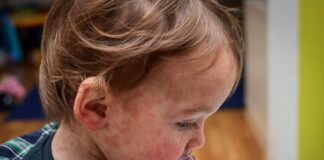Over 1 million people in the Caribbean region are reported to have disabilities, making them vulnerable to discrimination and exclusion.
In recognition of the need to address barriers for persons with disabilities and allow them to live their lives with dignity and respect, the Barbados government launched an Advisory Committee responsible for the establishment of a Commission for Improving the Lives of Persons with Disabilities.
The Committee was also mandated to prepare a national policy on disabilities and a draft bill focused on comprehensive rights and protections for people with disabilities. This year, the Parliament began debating the 2023/2030 National Disabilities Policy, signifying a milestone for the community whose most significant issues involve the lack of access to gainful employment, transport, and healthcare.
While Caribbean countries are demonstrating efforts to uplift persons with disabilities, it’s also worth noting how disabilities can affect the Caribbean American population due to genetic factors. Below, we discuss research exploring the genetic landscape of hearing loss in the Caribbean and highlight accessible solutions that can help improve hearing-impaired individuals’ health and quality of life.
Hearing loss and impairment in the Caribbean population
In the Caribbean region, among the common disabilities affecting the population are hearing loss and impairment. Together with Latin America, the region accounts for 8.6% of global hearing loss, with the prevalence increasing with age.
Since the hearing disorders in at least 50% of affected individuals are considered to be congenital and prelingual-onset, research published in the Balkan Medical Journal found that the genetic causes of hearing loss can affect the Caribbean diaspora in the United States. As individuals of Caribbean descent immigrate to the US, notably in Florida, New York, and New Jersey, they can carry the genetic and phenotypic variants associated with hearing loss and contribute to population-level prevalence in these areas.
For instance, the review mentions a population-based study of three US states with significant Caribbean Hispanic representation and found that hearing loss disproportionately affects males and older people from Puerto Rico, Dominican Republic, and Jamaica. The good news is that hearing solutions are increasingly becoming accessible, allowing deaf and hard-of-hearing individuals among the Caribbean American population to participate fully in society and reduce the risk of discrimination and social isolation.
Accessible hearing solutions emerge
Hearing aids are one of the main forms of assistive technology used by hearing individuals, as these sophisticated devices amplify and enhance sounds for improved communication, social interaction, safety, and confidence. Interestingly, technology company Nuance’s latest hearing solutions transform and innovate conventional hearing aids through the introduction of hearing glasses with beamforming microphone technology. These stylish glasses provide not only clear vision but also cutting-edge sound engineering, allowing wearers with mild to moderate hearing loss to listen to real-time conversations with reduced background noise and low-latency response.
The increasing availability of hearing aids can also be observed through Apple’s latest feature for its AirPods. Through the iOS 18.2 update, the tech giant’s flagship wireless earphones can be equipped with a clinical-grade hearing aid feature, which boosts frequencies and enhances sound clarity for those with mild to moderate hearing impairment.
The Hearing Protection function is now available in Canada and the US, while other functions, such as the Hearing Aid and Hearing Test, are being rolled out across various regions, including the Caribbean, to democratize assistive technology and reduce stigma against hearing disorders.
Continue reading Caribbean National Weekly for the latest news on Caribbean Americans throughout the United States.














